In this very special episode of The Happy Doc, Taylor…
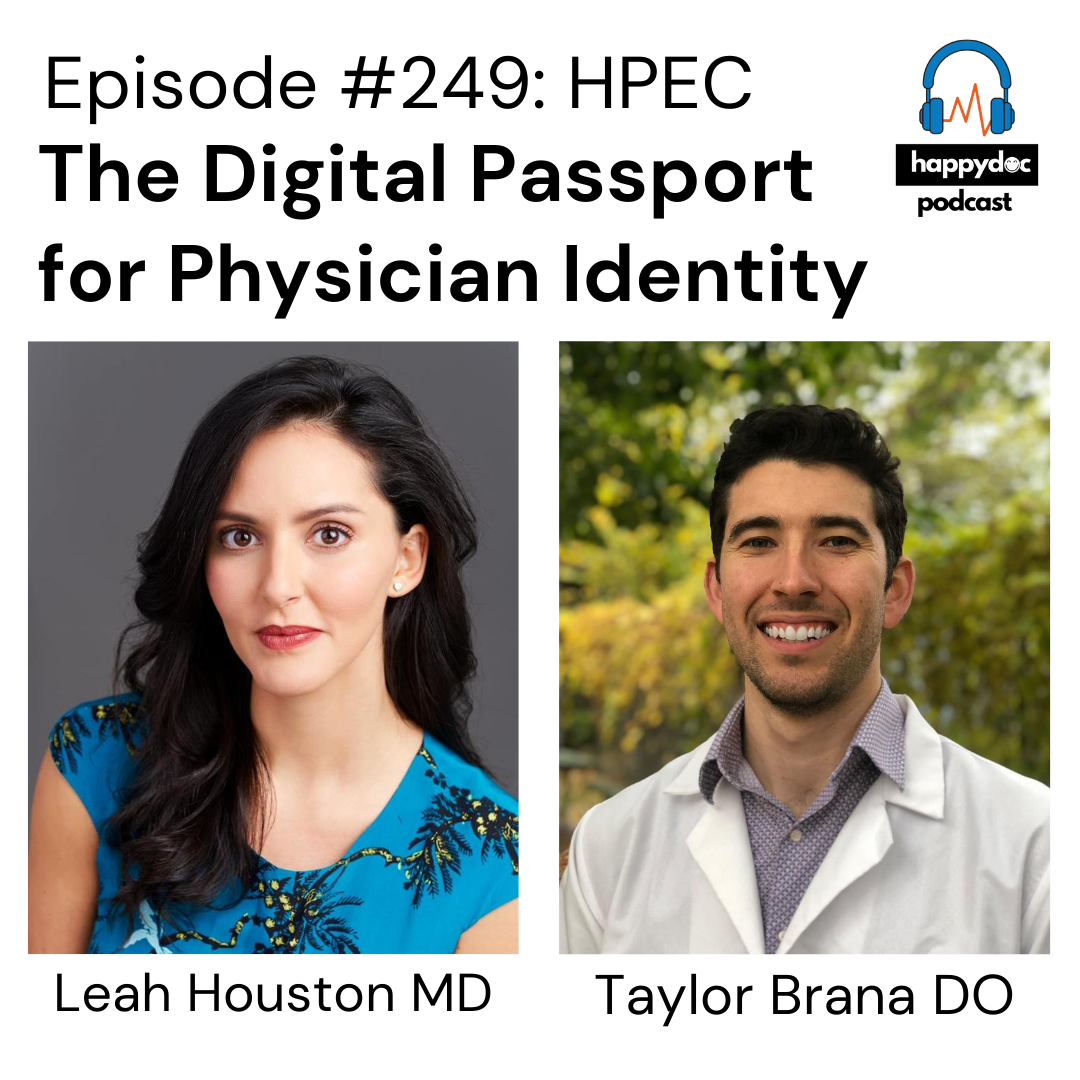
HPEC: The Digital Passport For Physician Identity | Dr. Leah Houston
Transcript
[00:00:00] Medical laboratories are always on the lookout for healthcare professionals who are willing to give their expert opinion on the latest medical breakthroughs. All Global Circle offers healthcare professionals the opportunity to shape the medical industry by participating in surveys that are relevant to their specialty. Receive $50 of signup bonuses, and get paid for participating in studies by giving your opinion. Sign up today, impact millions of lives, and go to www.allglobalcircle.com.
Welcome to The Happy Doc, the voice of fulfilled physicians. Sharing life stories from physicians, health professionals and entrepreneurs, so that you can live your happy life.
[00:00:51] Dr. Taylor Brana: Hello everyone, and welcome to another episode of The Happy Doc. Always excited, and I get to speak to Leah Houston. Dr. Leah Houston has been on my show before. And so it’s really great to check in and talk to an old friend. And, I’m very honored honestly, to speak to you, because I know how much great work you’re doing in the physician space.
So I appreciate your time and thank you for hopping on.
[00:01:19] Dr. Leah Houston: I’m so grateful to be back on. It’s so cool.
[00:01:22] Dr. Taylor Brana: Awesome. So look, there’s plenty of people that might have not heard your name. And to be honest, I see you a lot because you are doing so much promotional work for HPEC, and we’ll obviously dig into that. But for people who don’t know you, what’s a little bit about the background of your medical career.
[00:01:42] Dr. Leah Houston: Well, I’m an emergency physician. I practiced across the US for nearly 10 years as a locum tenens doctor, primarily. And something happened to me that made me take a little bit of a pivot. And that was that a hospital stole my professional identity.
And they were using it to bill and to make money off of me as a doctor after I left the hospital, after I left the state. And that led me to realize really when we become employed as doctors, they’re really just using us in some ways. They’re using us, they’re using our numbers or MPI numbers, our PTN numbers, our DEA numbers. We’re nothing but a number to them.
And I will talk about the #RVUfactory. You know, I use that hashtag because we’re like assembly line workers in an RVU factory generating our views. Pushing patients through clicking EHR boxes. And I realized that there was a new secure technology that could help alleviate a lot of this in many ways. And so I started pursuing that for all of us.
[00:02:49] Dr. Taylor Brana: Amazing. And in that process, if I remember your story correctly, you only found out months later, right? That your identity was stolen and your NPI was being used for something completely else. And then after that whole process, you realize, wait a second, it’s so simple for someone just to use their number and then it caused issues for you to be able to actually get a new job. Correct?
[00:03:14] Dr. Leah Houston: Absolutely. So, you know, the federal government. Had the impression that I was working without a license when in actuality somebody was just using my numbers in a state that I was no longer licensed in. And it did, it caused a delay in my ability to work. When they thought it was working out at a license, they pulled my ability to bill and to work anywhere else.
And after this five month process of essentially getting the hospital to admit their mistake, we reached a small settlement agreement, a very small one, not even touching the damage that was caused to my career and my livelihood. I realized how this happened and it’s that when we sign up to be employed or when we fill out paperwork for any kind of credentialing, for insurance or for a hospital or health system or an employer, somewhere in there, there’s a fine print that says sign here to let us bill under your name.
And we assume that it means when we’re working, they will bill only for the patients that we actually saw. But if that piece of paper gets misplaced or if the wrong person is in charge and tells people to do nefarious things, Then there’s nothing that we can do about it, and there’s very little that we can do to actually find out if this has happened.
And to be honest with you, the only reason that I found out about this is that I moved out of the state, my state license ended, and then I moved back and reinstated it. Now, how many times has that happened to us? So, is this happening to hundreds, if not thousands of other physicians, when they don’t even realize it? is this one significant portion of Medicare/Medicaid Fraud, where patients are being overbilled for services that were never rendered? Who knows. It’s hard to tell.
[00:05:02] Dr. Taylor Brana: Yeah. So it seems like you’ve hit on a very tremendous pain point. And one of the things that I know you talk about a lot, and we’ll get into it shortly, is the fact that physicians are very disempowered right now. And we’re basically under the control of the hospital system.
And it can work well for some people, but then if you think about traditional medicine, right, the physician was the head and could bill directly to patients. And there was that tighter physician-patient relationship. And now we’re very far gone from that, obviously. So let’s move forward.
Now I know HPEC is a very impressive organization that you’ve started to move forward on with blockchain technology. So can you speak to us about what HPEC is and what are you bringing to the table here?
[00:05:57] Dr. Leah Houston: So when you think about this credentialing that we do in order to get jobs in order to take insurance, it’s essentially, they’re verifying that we are who we say we are.
It’s about identity. It’s about verifying that we’re doctors that went to medical school and residency and finished all of these, Step 1, Step 2 board exams, and that we are allowed to do what we say we’re allowed to do.
Now, as our world becomes more digitized, not only with EHR, but with electronic sharing of information of our prescribing patterns, our referral patterns, there are new ways that we can verify that we are who we say we are without having to go to these initial primary source verification places.
So to give you an understanding of what I mean by that: When you go to the airport and you’re flying out of the country, you bring your passport, you show your passport and they let you in. Now imagine if you had to bring your passport, and then you had to bring your birth certificate, your vaccine titers from your pediatrician, proof that you graduated from elementary school, your driver’s license, and then not only would you have to bring those, but you brought them to the airport and then the person at the airport had to call your hospital to make sure that that’s where you were actually born, your pediatrician to verify that you actually got those vaccinations. This is the process that we, as physicians, have to go through in order to work. This is a restriction on our right to work on our it’s a restriction on our freedom to move between jobs.
[00:07:34] This overly onerous, overly regulated process of verifying that we are who we say we are is out of control, like, out of control. And so there’s a new secure technology that allows me as the individual, the one who has my medical degree on my wall and my residency certification on my wall, my license on my wall to be the primary source of verified truth, just like we are with a passport and it will be a digital passport and that’s what we’re building.
[00:08:05] Dr. Taylor Brana: And that’s amazing. And one thing I got from the last time we talked was the fact that the process to actually get a new job and verify all this stuff takes months, right?
Like it can take up to like half a year to really even prove who you say you are, which is so strange to me. Like you said before in this digital world, why can’t we, like you said, have this digital passport to handoff and say, look, this is who I am. These are my credentials. This is my experience.
Let’s go. And that challenge is very strange. Now, obviously you’ve spoken to many people about this. What are some of the issues with that gap?
[00:08:48] Dr. Leah Houston: Well, every health system. So there are credentialing, standards, bodies that have standards over which this is supposed to happen. And so if you’re accredited by one of these places, you have to follow these standards, but every hospital has its different process of how they verify those standards.
The end game is the same. Is this person safe to practice what they say they’re safe to practice? You know, do they have any negative negligence situations in the past? Have they worked in some other place? Have they been fired, et cetera, et cetera. The end game is the same, but their process for finding out that information is not really standardized even though there are standards bodies.
So we as a physician community really need to demand a standardization process around this in order to create this freedom of employment mobility and create this ability to have the freedom to work and do our job without these undue restrictions.
[00:09:44] Dr. Taylor Brana: Yeah, absolutely. Now, I understand the digital passport, this is one aspect of HPEC.
The last time we talked, I knew that there was, kind of idea around using this as a platform to bring physicians together. And to have that place, that home, that physicians can feel comfortable. Is there another aspect in terms of things that we could do beyond just having the digital identity through blockchain technology?
[00:10:13] Dr. Leah Houston: So I appreciate you asking that because this is my favorite part, actually. The credentialing part is some great thing that we can fix. But a lot of people don’t really care about that. They’re like, whatever, I don’t mind, the six months, this also provides a complete identity solution.
So we’re all on Facebook right now. You know, we have our Facebook identities. Those identities are attached to all this timeline of things that have happened to us. In a similar way with this digital identity, this digital passport, we can also have a public profile and we can also communicate with each other.
And eventually with our patients and that’s the primary ultimate goal. So that we can keep that communication that we have with our patients secure, private, and trusted. The way it used to be. You know, right now we have to document our patient encounters on these centralized electronic health record systems and they go God knows where, and they do data analytics on our prescribing patterns, our referral patterns, and then they find out ways to essentially deny us payments. Prior authorizations, the number of prior authorizations, you have to have the number of surprise builds that patients are getting. Patients that are going bankrupt because of these surprise bills.
All of these things are increasing because we are sharing this protected information with them through EHR. And so, the communication piece, the end game, the identity, and the communication is really the most valuable part of what I’m doing with HPEC.
[00:11:49] Dr. Taylor Brana: Yeah, that’s great. That’s great. So I don’t want to necessarily go down the line of what the heck is blockchain technology.
That’s like a different beast. And there’s plenty of material that I know your website has and anyone can look to see how blockchain works. I’m curious now, since the last time we talked, there’s obviously been a lot of progress moving forward. I know that you’re doing fundraising, to really put this forward.
So how far along are we in the process of HPEC and bringing that digital passport for physicians to the present day?
[00:12:24] Dr. Leah Houston: So I’m a physician, I care about bringing this to doctors and making it physician forward and making a patient forward and making sure that it does all the things that we always promised it would do.
And so, I’ve worked really hard to fundraise from physicians primarily. And so we’re still 98% physician-owned. We’ve raised close to $300,000 between crowdfunding and on a regulation D offering that we have. And so basically right now, we are being given a chance as a physician community to invest.
And to own a piece of this technology collectively together. To build it for ourselves and for our colleagues and eventually for our patients. I’ve worked really hard to be accepted to a Regulation CF crowdfunding portal through the federal securities and exchange commission.
So anybody can become a part of this and can own a piece of it. And the reason I’ve done it that way is, I considered doing a nonprofit. And there’s just too many nonprofits. And I really do believe that physicians deserve to be rewarded for their time. I don’t think that we should continue these uncompensated administrative burdens.
And so that’s what this is about. This is about re-capturing our autonomy, re-capturing the doctor-patient relationship, and building a future for us.
[00:13:43] Dr. Taylor Brana: As you’re talking about this, I’m sure there’s a lot of people that are also probably butting heads with you as well. This is not necessarily – when you think about physician empowerment, it goes against the status quo of hospital systems.
Has there been any like attackers or negative feedback or you know, people saying you shouldn’t be doing this behind the scenes?
[00:14:11] Dr. Leah Houston: Well, it’s actually interesting because I actually met with a chief information officer of a very large, very prominent health system in New York City, that everybody would recognize by name, but it will remain unnamed.
And he was like, wow, this is a great idea. And then silence. Crickets. And so, I think that in general, most people see the power and the value of this. Most people see that this is really the way it should be. But you know, large health systems are very slow to move. And keeping the status quo is keeping their products billed, whether it be insurance companies or hospitals, and so giving up and relinquishing any control to anybody else is not something that they want, even if they know deep in their heart, that it’s the right thing to do and that it’s better for doctors and patients.
And so this is why I’m also going to the physician community first. We’re the ones who took the Hippocratic Oath. We’re the ones who said we would put patients first. Well, this is our opportunity to do that and to build the solutions for us and for our patients.
[00:15:17] Dr. Taylor Brana: Yeah, absolutely. And it’s, it’s interesting now in present times, I’m thinking with COVID and obviously you’ve seen all the articles and everything with physicians feeling like they’re being taken advantage of. It’s very difficult, right? When you’re working consistently and you’re stuck between needing to work, but also maybe in one part in your mind, you might say this isn’t a safe environment.
I don’t have enough PPE, or there’s something I can’t do here. And you can’t really speak out. You feel uncomfortable, you feel like your lifeline of what you can do is very tethered to the hospital system. And I’m wondering, with something where physicians can come together and they have their identity protected, and there’s a community space where you feel more secure to be part of the physician community.
I’m wondering if those types of things in the future might be something that would be completely changed or not even part of the discussion.
[00:16:13] Dr. Leah Houston: Well, one thing about this is that it is truly decentralizing technology, meaning there’s no third party. So right now, we have Coronavirus, physician groups where we’re discussing the coronavirus.
Well, Mark Zuckerberg and his team are able to see what we’re writing there. They’re probably also able to see our IP addresses, where we’re located, whether or not we’re actually doctors as they’re observing these conversations, because it’s centralized, it’s being surveilled. This decentralizing technology is resistant against surveillance.
And we have an opportunity for privacy and trust again, where we can communicate with each other without fear of retaliation, without fear of getting in trouble with our employers, because this is physician to physician. It’s a peer to peer network. And it’s only made possible by this distributed ledger technology tool of self sovereign identity.
[00:17:17] Dr. Taylor Brana: Well, at the end of the day, if we’re going to be effective physicians in the healthcare community, truth and transparency is the number one thing you need. Because as if you don’t feel safe to talk and discuss the culture and discuss issues in a way that is open and honest, there’s never going to be progress.
And I feel like, as you know, I feel definitely too sometimes, you can feel stifled in your ability to speak openly about issues with the idea that you could be reprimanded or the idea that you might be looked down upon and for your thoughts or your whatever perspective you have.
And so I think it’s absolutely valuable, just from the leadership perspective for us to progress, to, to feel comfortable to do that. So I think that’s very admirable.
In terms of HPEC and your goals. If anyone’s interested in checking you out and looking forward to helping you, what, where are you at? What are you looking for for listeners to do?
[00:18:26] Dr. Leah Houston: So we have exactly 12 weeks until the close of this fundraising round. And after that, this opportunity has gone. So right now we’re being given a chance to do this because, after that, I’m going to have to start looking for fundraising outside of the physician community, because I don’t want this to not become a reality just because it wasn’t funded by doctors.
I mean, even though that’s my dream this is our opportunity. In my opinion, HPEC is a lifeline. We just have to grow, grab hold of it. And you can do that just by going to the website hpec.io. And there you can join us and just join the movement and have your identity available. Once it becomes available, you’ll be notified, or you can take that extra step of investing in becoming an equity partner and purchasing a stock in the company in order to own a piece of it. And to own a piece of the potential revenue that could come from it as well, someday. And that’s also available on our website.
And for those of you who don’t want to do either, but still want to contribute something and get an opportunity to win some money, we also have surveys. We have a 5 for 500 community where if you complete five surveys, you can be entered into a chance to win $500.
And these are very short, 10 to 15 minute surveys that are really helping us to design this platform with you in mind. We’re going to be asking for feedback on the design of the platform. On what issues are important because we are going to have community forums as part of this.
And we really hope to have our MVP out by November. Hopefully, we’re working on it. And so we’d love for you to join us in whatever way, we’d love for you to follow us on social media. I’m @LeahHoustonMD and @HPECid across all platforms.
[00:20:15] Dr. Taylor Brana: Amazing. So we will be sure to also post all of those links to our show notes. Now, I asked you a lot of questions, but was there anything I didn’t hit in this conversation that you wanted to make sure our listeners knew about?
[00:20:30] Dr. Leah Houston: I just want everybody to realize that I’m doing this for us. I could be practicing emergency medicine right now.
I could be just having a job somewhere and making money, helping out with the coronavirus pandemic, like a lot of people are, but I truly believe that this is something that’s extremely important and it’s for us and it’s for our future. And I know that this technology is coming with or without us. We can pretend and keep our heads down and pretend like it doesn’t matter.
And then one day it will be adopted by whichever health system we work for. You know, banks are looking at this technology or identity verification. Real estate companies are looking at this technology for identity verification. So this is not just for healthcare, but this is for us as physicians considering this long credentialing process, the way that we really do need to have privacy with our patients.
Our patients seem to trust that our conversations are private. In my opinion, this is one of the most, if not the most important application for this technology. And that’s why I’m really pushing hard to create it for us.
[00:21:34] Dr. Taylor Brana: Well, amazing. I would absolutely urge anyone listening to please check out hpec.io and obviously go ahead and follow all the links that we discussed earlier.
Leah Houston, you’ve spent a lot of time with us today. I sincerely appreciate you being on the Happy Doc Podcast. It’s amazing to see people that are really trying to not just be a physician and you know, there’s a whole other side, which is burnout.
And meanwhile, you’re trying to innovate and upgrade what we have. So I want to thank you so much, and I honestly commend you for the work that you’re doing.
[00:22:14] Dr. Leah Houston: I appreciate what you’re doing because, without you, nobody would know what was going on. So, thank you.
[00:22:18] Dr. Taylor Brana: And that’s the episode for today. I want to thank you so much for listening to the Happy Doc Podcast. Again, this is a podcast that is going to inspire you as a physician, as a health professional, as an individual to be fulfilled in your life, so please look out for the other episodes in The Happy Doc. If you enjoyed today’s episode, please leave a five star review on the podcasting application of your choice. You can also reach out to us by emailing the happydoc1@gmail.com. I’ll see you on the next episode.
1 2
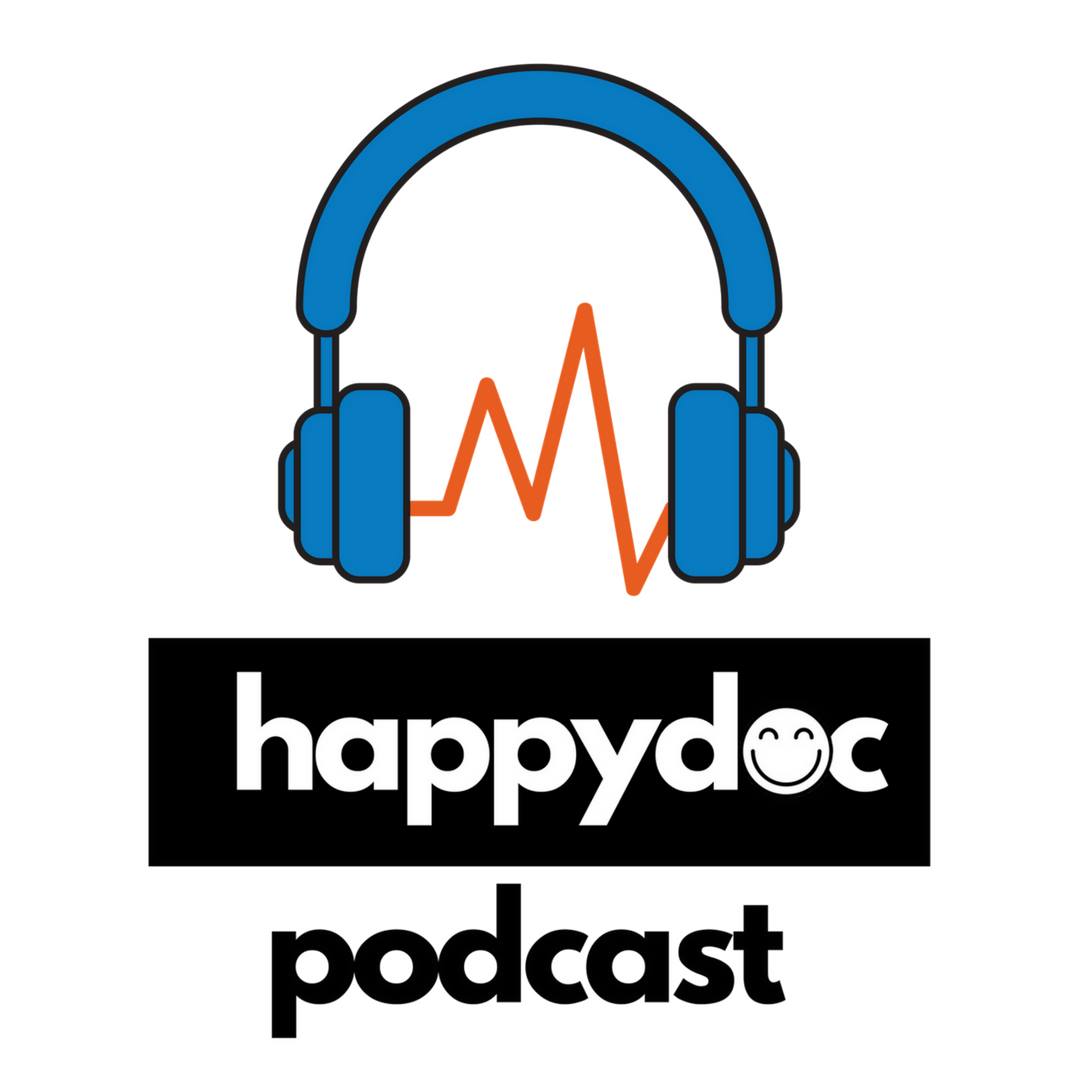
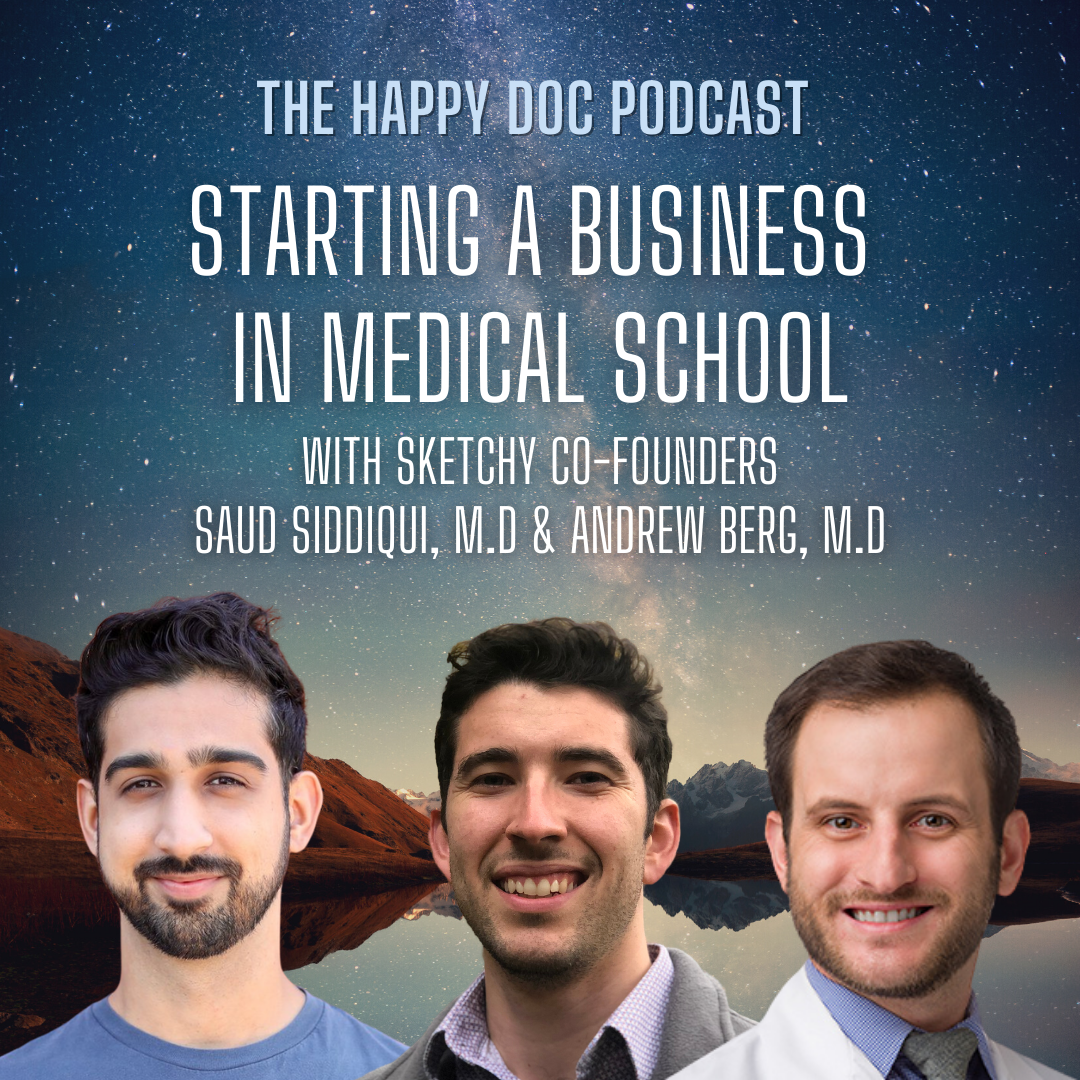
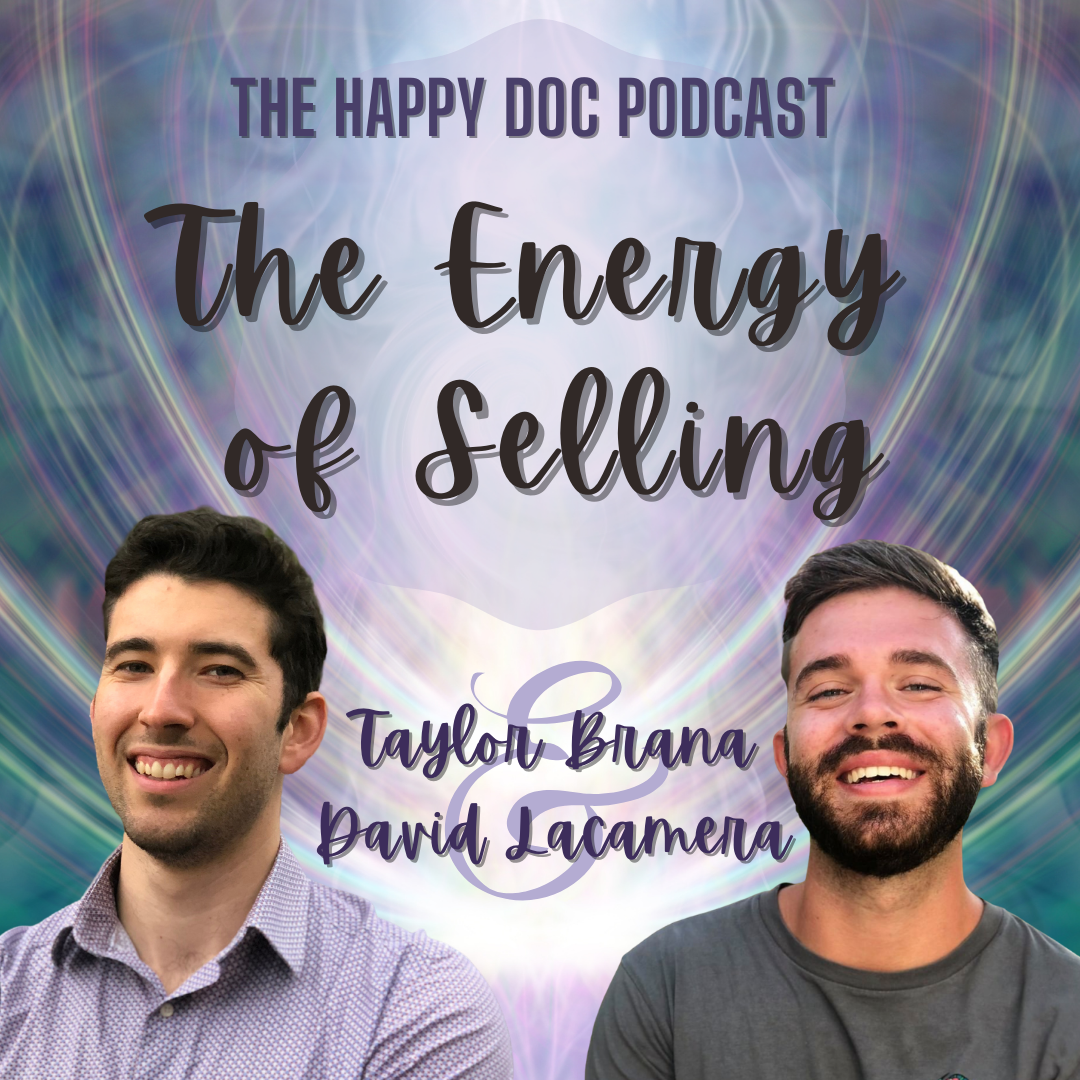
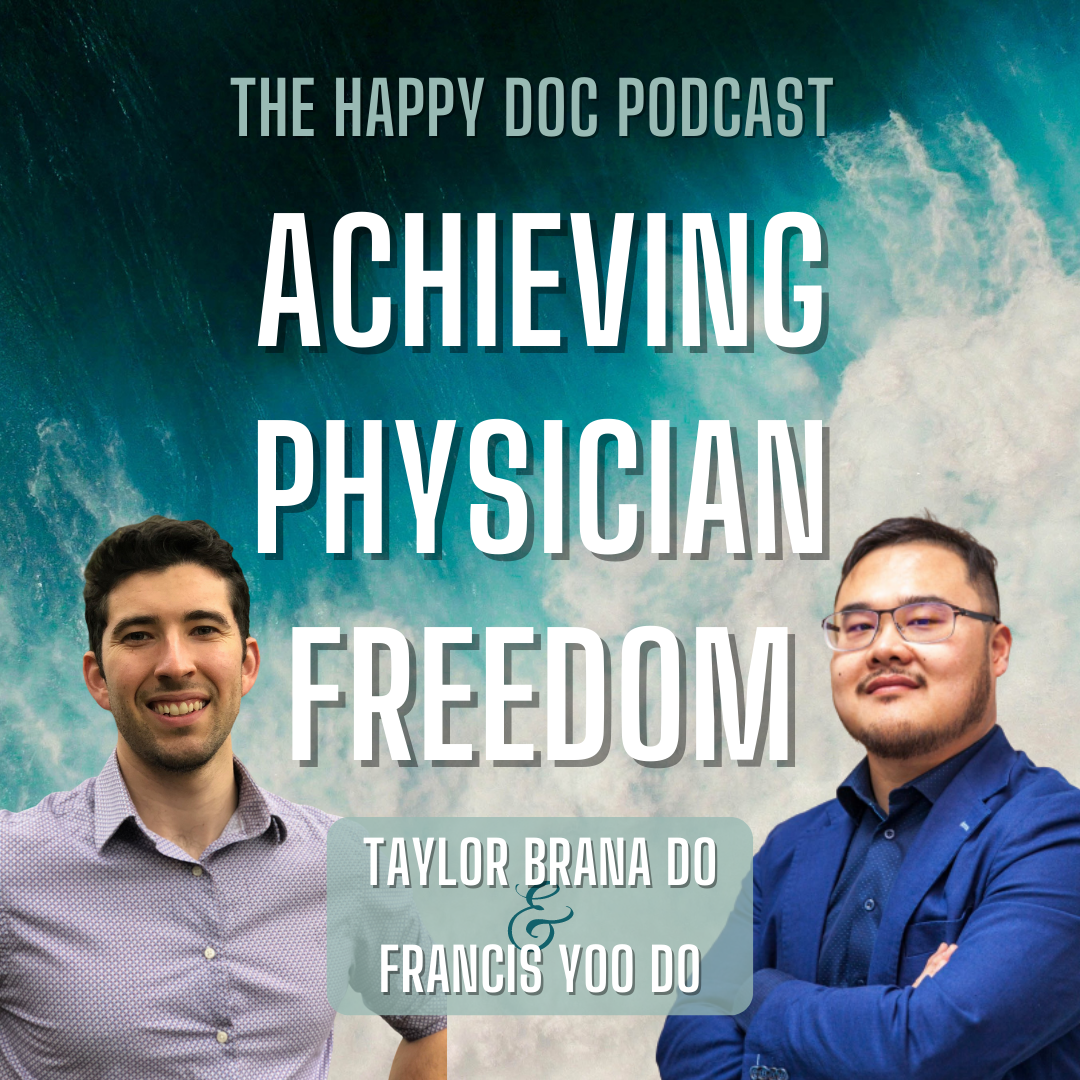
This Post Has 0 Comments